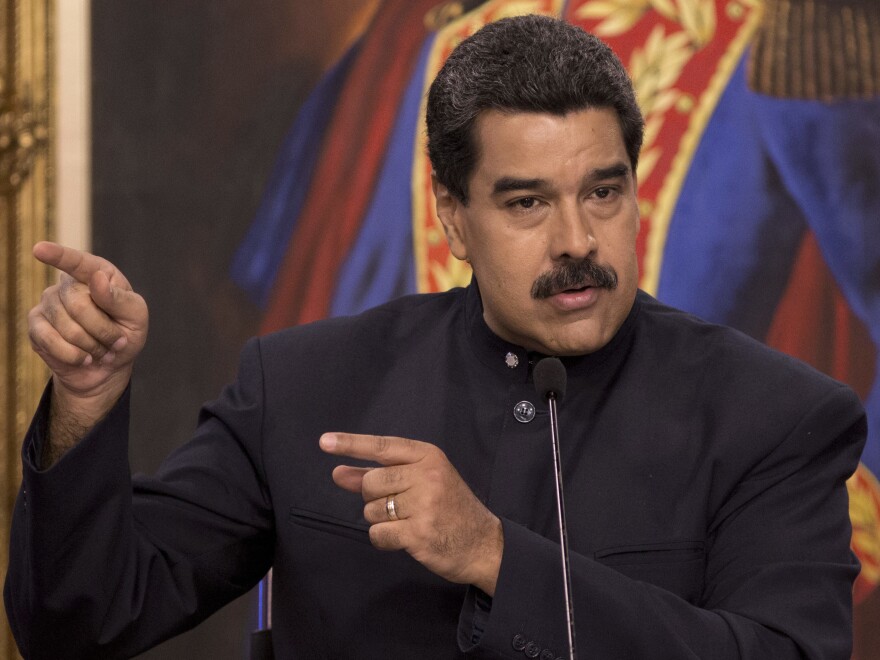President Trump is imposing a new round of economic sanctions that are aimed squarely at choking off money to Venezuelan President Nicolas Maduro's regime but "carefully calibrated" to preserve U.S. oil imports from the South American country, according to the White House.
The latest sanctions — the fourth round in recent weeks — are the first to move beyond freezing the assets of individuals and target the government itself.
The executive order signed by Trump bars U.S. institutions from buying new debt issued by the Venezuelan government or from the state-owned oil company Petróleos de Venezuela SA.
"It also prohibits dealings in certain existing bonds owned by the Venezuelan public sector, as well as dividend payments to the government of Venezuela," the White House said in a statement.
But the sanctions don't apply to short-term financing for oil sales. They also exempt transactions with PDVSA's U.S. subsidiary, Citgo. In other words, they would not affect U.S. oil imports from Venezuela.
The exceptions are designed "to mitigate harm to the American and Venezuelan people," according to the White House statement.
The Maduro regime is running out of money. The White House said the latest sanctions are "carefully calibrated to deny the Maduro dictatorship a critical source of financing to maintain its illegitimate rule."
A senior Trump administration official, speaking on background, said Maduro was rewarding and enriching corrupt officials within Venezuela's government "by allowing them to ramp up massive debt."
"We will not let the regime use our financial system to abuse the Venezuelan people and their rights," the official said Friday.
NPR's Scott Horsley reports that the U.S. "says it's prepared to relax sanctions if Venezuela restores democracy. But if the country continues to embrace dictatorship, the economic pain could be ratcheted up."
Last month, the Trump administration slapped sanctions on 13 current and former officials of Maduro's government, freezing their assets in the United States and preventing Americans from doing business with them.
As NPR's Laurel Wamsley reported at the time, the pressure was aimed at preventing Venezuela from going forward with a controversial election to form an all-powerful National Constituent Assembly. Days after that vote, Maduro's assets were also frozen.
And earlier this month, U.S. financial sanctions targeting individuals associated with the creation of that assembly were rolled out.
Copyright 2020 NPR. To see more, visit https://www.npr.org. 9(MDAyMTYyMTU5MDEyOTc4NzE4ODNmYWEwYQ004))



